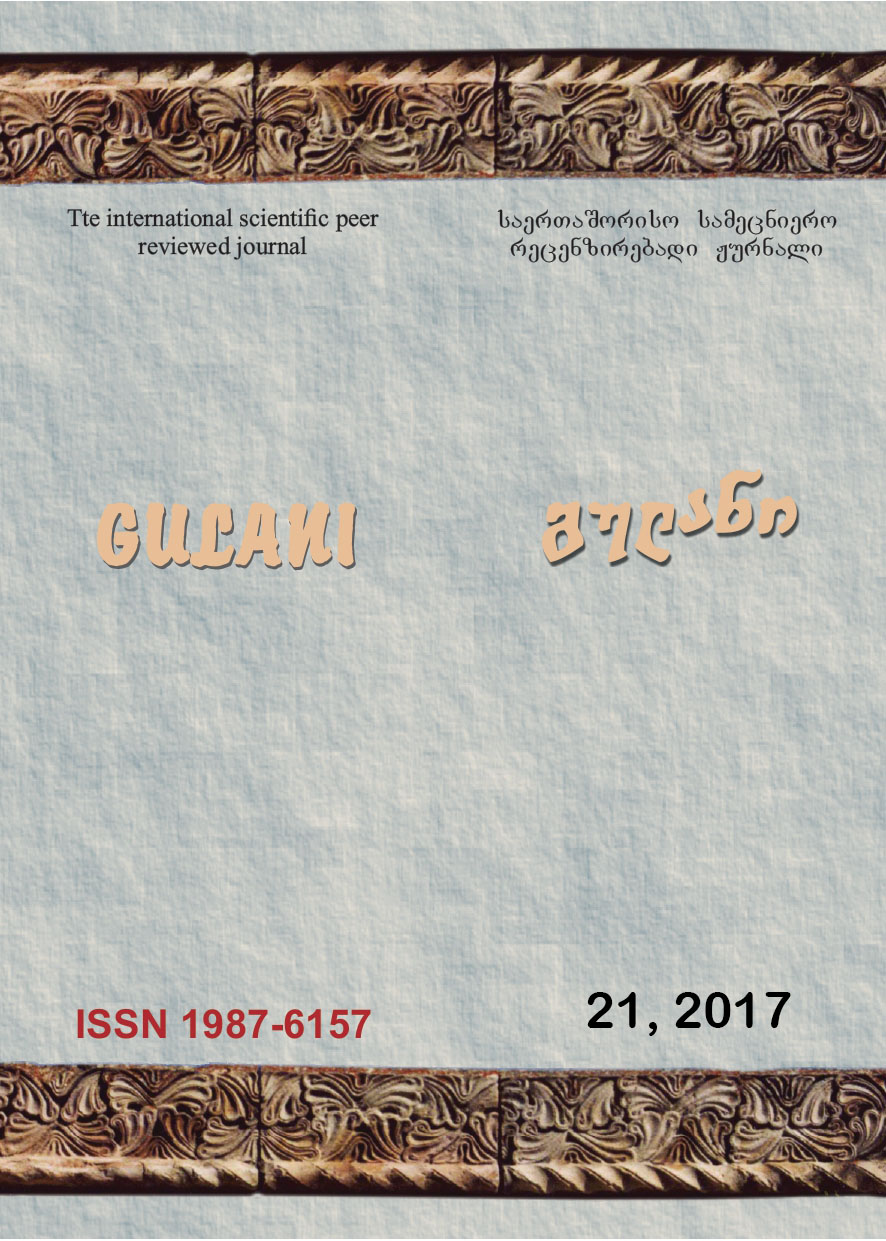,,ISNIS KARVIS” IDEA AND ATTEMPT TO ESTABLISH CONSTITUTIONAL MONARCHY AND TWO-CHAMBER PARLIAMENT IN GEORGIA IN XII CENTURY
Main Article Content
Abstract
The article considers very significant phenomenon taken place during Tamar Mepe’s epoch – Kutlu-Arslan group movement against the royal powers and very important demands made by them. It was the first case in the world when the issue of the powers allocation was really brought up as the agenda. The paper analyzes the consistent way Kutlu-Arslan group movement and their demands, various authors’ different opinions about Kutlu-Arslan group, historical importance of this phenomenon and its results. Despite the defeat, appropriate conclusions and evaluations have been done. We concluded that social-economical and cultural level of Georgia then completely conformed to the idea, which was born and expressed in Georgia by Kutlu-Arslan group. After Vephistkaosani by Shota Rustaveli «Isnis Karvis” idea offered by Kutlu-Arslan group in XII century constitutes the Georgians’ most important contribution to development and history of the world culture constitutional thinking. In 1184-85 Kutlu-Arslan group’s political program and their confrontation – riot against the king was a real attempt to allocate powers made by the Third Estate representatives, which purpose was serious restriction of the king’s powers, almost on the Constitutional Monarchy level, allocation of powers, attempt for two-chamber Parliament establishment together with the royal courtyard, where the main should have been “Karavi” in Isani, which would control the legislative and legal authorities, while a king should have executive authorities.
All that meant a great breakthrough and unique phenomenon in the then world political life, significant innovation in the great civilized and in history of the constitutional thinking.
In Spain, in Kingdom of Castilia, Cortes as the people's representative body started activities in 1188, after the "Isnis Karvis" creation attempt was made, while in 1215 English barons forced a king John Lackland to reconcile with "Great Character of Freedom", on grounds of which Parliament was established in England in 1265.
